A YEAR WITH THE NAZARETH TRUST
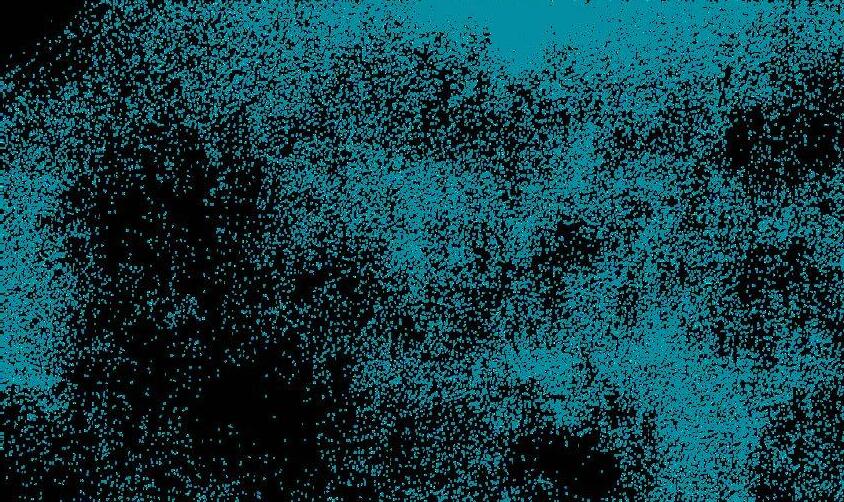

2022
The President of the State of Israel visits Nazareth Hospital
Born at Nazareth Hospital
Ready, Set, Go!
First Board Meeting in Israel since 2019
Expansion of the Dialysis Department
The Nazareth Academic School of Nursing is Growing Fast Dr Salam Hadid Joins the Prestigious INBAR Program
Changes and Hope
Welcome Back, Volunteers! Majdoleen Nawatha, new SERVE
Nazareth Coordinator
Pilgrim’s Guest House Refurbishment
Meet Anna Herning
Our Emergency Rooms
A Recent Collaboration Olive Harvest 2022

A Resurgence of Visitors Coming to Nazareth Village
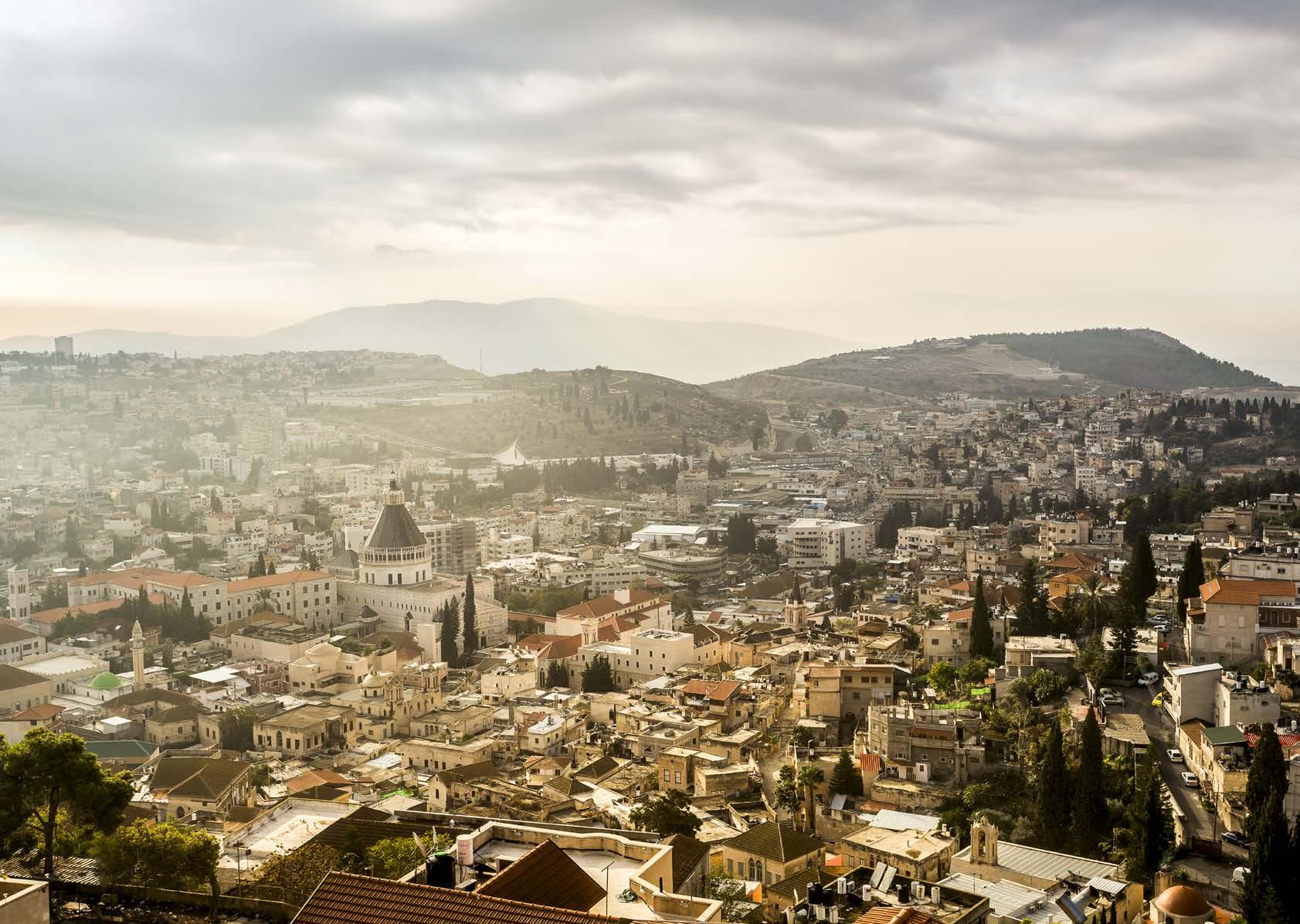
Meet Ivone Sima’an
Yosi Dolinsky from the Nazareth Village helps Ukranian Refugees
Jesus Trail Reflections
The Three Seas Challenge
Working Behind the Scenes: Najla (Nana) Hamati
Christine Farah: from SERVE to Pastoral Care
Receiving and Sharing God’s Comfort in Times of Trouble
8 11 12 14 18 22 26 34 36 40 47 51
June July
December January February March April May
August September October November
CONTENTS
A word from our former chairman DR MORGAN JAMIESON MBE
Endings offer opportunity for reflection. On a personal level, this past year has marked the conclusion of my tenure as a member of the Nazareth Trust Board, much of which included the added and very real privilege of serving as Chair. The past nine years have been full of challenges and changes, times of tested faith and seasons of real encouragement, plans fulfilled and plans altered or laid aside in the face of the unprecedented demands of a pandemic. Looking back over these years, the memories are many and rich, but, aside from recalling specific moments and events, reflection also brings appreciation of broader themes that run in and through the work of the Trust.
The people. All the work in Nazareth gathers around personal interactions. Whatever processes we adopt and procedures we follow, the care of patients, the nurture of students and the engagement with visitors and volunteers depend firstly on people. The dedication and resilience of our staff, seen most particularly during the Covid outbreak, is a source of great encouragement and genuine gratitude. They, and particularly the executive team who offer the service of leadership, merit and need the faithful, prayerful support of all those concerned for the ongoing work and witness of the Trust.
The past. Documented in Deuteronomy, Moses’ final instructions to the people he has led for over forty years include repeated reminders to ‘remember’ how God has


liberated, protected, led and provided for them. Remembrance, not as nostalgia or even celebration, but remembrance as sustenance for all that lies ahead. During this past year, there have been a number of events marking the 160th anniversary of the Nazareth Hospital. For whatever the future holds, that long story of God’s direction, protection and provision offers the secure standpoint from which the future work of the Trust can be discerned and embraced.
The place. Nazareth has a unique place in human history. It is where Jesus spent most of his earthy life and is the town whose name was nailed to the cross. The ensuing two millennia have seen the emergence of a complex, too often divided, landscape of Christian tradition, practice, worship and doctrine. To be in Nazareth, at least for myself, cuts through that complexity and creates a healthy reminder that the heart of the Christian faith is simple and universal. Am I prepared to trust and follow the Word made flesh who once called this place ‘home’?
For the opportunity in these past few years to engage with the people, have a brief part in the history, and be taken back to the roots of our shared faith I am deeply grateful.
4 A Year with the Nazareth Trust 21/22
Dr Morgan Jamieson MBE
As a Board, we will continue to ensure the Nazareth Trust remains in a fit state to continue and grow its ministry over the next 170 years and I remain confident that we will

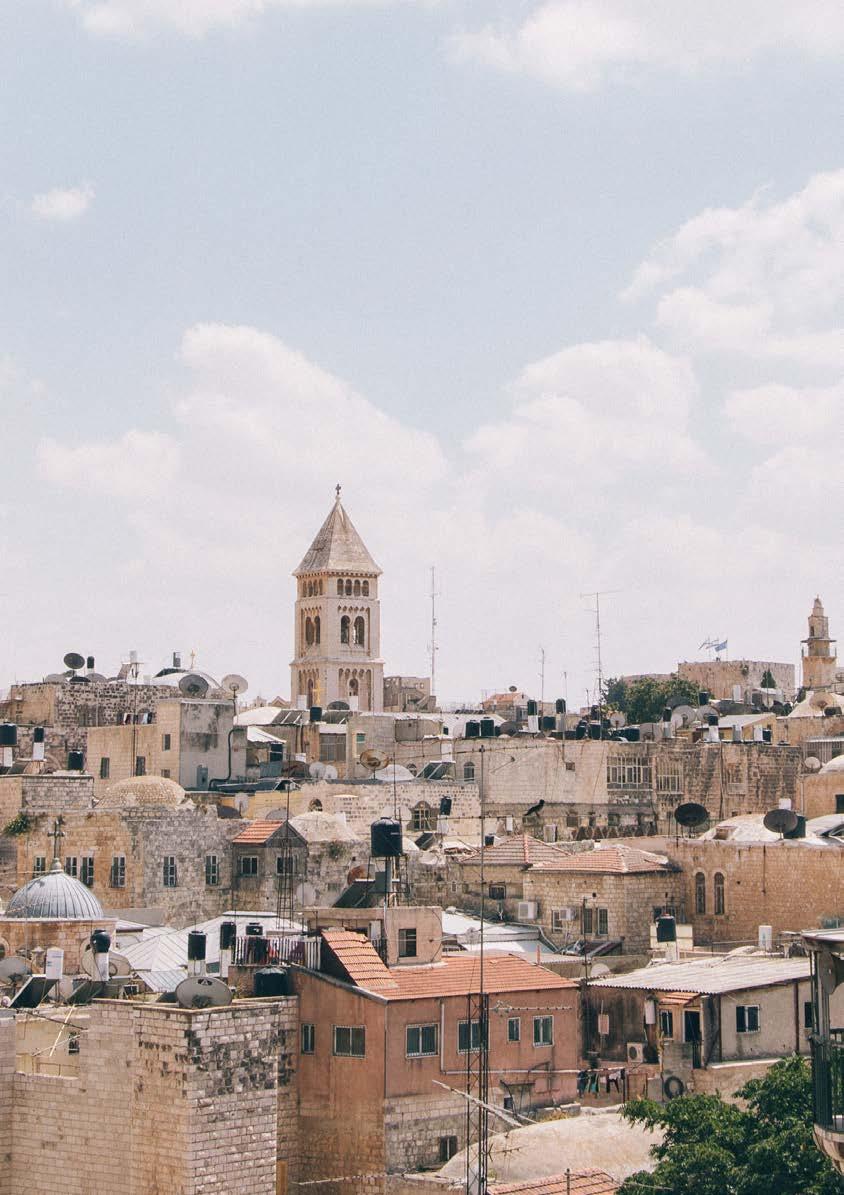
An enormous help in restoring financial stability will be the breadth and depth of our Board. Credit again is due to Morgan as he has built a strong and professionally qualified Board, who will work collectively to protect the ministries of the Trust. Similarly, our gifted executive team is working in lockstep with us to secure our future.
opportunity to thank the staff for their effort and forbearance over the last few months and indeed years, with the pressures of COVID-19 and the current financial crisis creating anxiety for staff and their families. The Nazareth Hospital, the Nazareth Academic School of Nursing, Nazareth Village and SERVE benefit from staff with a dedication that goes beyond what is required by their employment contract, and we are very grateful for this, as they seek to
A Year with the Nazareth Trust 21/22 7
The President of the State of Israel visits
NAZARETH

HOSPITAL
2021 ended on a high as His Excellency Isaac Herzog, President of the State of Israel, visited the Nazareth Hospital to launch the 160th-Anniversary celebrations.


After showing Mr Herzog around the hospital, the Trust’s CEO Richard Mayhew reflected on the Scottish roots of the charity and its longstanding history: “We are proud of our 160-year history, and we are delighted, Mr President, that you are here today to celebrate with us. Our Christian faith is at the heart of our organisation, expressed through the care for the sick physically, emotionally, and spiritually. Health is a unifying factor in this hospital. Our staff and patients, perhaps uniquely in this hospital, represent all the different faiths, faith traditions, and political persuasions of this land, united as one in treating the sick.”
Isaac and his wife Michal gave thanks to the management and hospital staff for the outstanding medical services provided to the region, especially during the COVID-19 pandemic: “The Nazareth Hospital is distinguished by faith, a faith in God where the three religions believe in saving lives and treating those who need it. Thank you for your great work serving the community with His grace.”
We are so honoured that the President came to visit us to learn more about everything we do at the Nazareth Trust.
A Year with the Nazareth Trust 21/22 9
MrIsaacHerzog,PresidentofIsraelwith executivesattheNazarethHospital
DECEMBER
BORN AT NAZARETH HOSPITAL


We began 2022 with a visit from the Rosenblum family to celebrate the Bar Mitzvah of their son Naz who was born in the Nazareth Hospital. Thirteen years ago, during Dr Adam Rosenblum’s speciality training at Beer Sheva Hospital, his wife gave birth at the Nazareth Hospital. They did not know what to name the child, but as soon as they noticed the word “NAZ” on the baby’s bed, they decided that would be his name, which referred to the name of the hospital and the city.
at a party held in Austin, Texas, a few weeks later: “We spent a few hours touring the hospital, meeting the people who worked there and hearing about the needs of the community. I got to hear a baby being born: it was pretty cool.”


During his Bar Mitzvah celebrations which took place in Jerusalem, Naz came to Nazareth alongside his close family to volunteer at the hospital and see the building up close. During the visit, they entered the women and obstetrics department, and we celebrated his birthday and gave him a gift. Naz recalled this memorable visit
In addition to wanting to volunteer at the hospital, Naz suggested that for his next birthday, he would ask all his family, friends and acquaintances to give a gift of a donation to the hospital to help expand the provision of mental health services in Arabic in Nazareth. “While we were with the staff in Nazareth, we learnt that the only mental health unit in the entire country of Israel linguistically and culturally accessible for Arab people is in the hospital I was born. And it only has twenty-two beds for the whole country”, Naz remarked.
JANUARY
Nazasababyatthe NazarethHospital
Changes and Hope
February was like a breath of fresh air as the Nazareth Hospital’s Mental Health Department expanded and transferred to the Golden Care Medical Center facilities in the north of Nazareth.
This exciting new beginning overlapped with the 26th-Anniversary celebrations of the department, established back in 1996. Since then, we have focused on providing culturally and linguistically sensitive mental health services for all and for the Arab community in particular.
Dr Nabil Geraisy, Head of the Mental Health Department talked about the Golden Care-Doshi Center: “It’s a location with advanced equipment that offers high-standard and culturally sensitive therapeutic services.”
A few weeks later, the magical date 22/02/2022 landed upon us. What would this day bring? 22 bundles of joy. Yes, that’s right. Twenty-two babies were safely born in the Nazareth Hospital on the 22nd of
February, 2022. It was a truly eventful day, as we reached a new record of births at the hospital.

Among the newborns was Fouad Zoabi, born at 22:22. His mum, Marwa Zoabi, said: “I did not plan to give birth on this special day, but God wanted me to give birth on a special day and at a special hour. I thank all the staff in the maternity rooms for the wonderful service and high professionalism”.

Can you guess what our favourite number is now?

12 A Year with the Nazareth Trust 21/22 A Year with the Nazareth Trust 21/22 13
FEBRUARY
“I did not plan to give birth on this special day, but God wanted me to give birth on a special day and at a special hour.”
OUR ROOMS
Nazareth Hospital ER ranks second best in the country
The Nazareth Hospital’s Emergency Rooms ranked second in an opinion poll about the best emergency rooms run by the Israeli Ministry of Health.

Nazareth Hospital retained its leadership by achieving a high score of 82%, given by patients who received treatment at the ER over the last two years.
This award is the result of the continuing high standard of medical care provided by the ER staff to the area’s population throughout the challenges of the COVID-19 pandemic and maintaining their efforts in treatment and service.

It’s not the first time that our ER has been praised. Last year, the Scientific Academy Council recognised our ER as a distinguished centre for specialisation in emergency medicine whilst receiving approximately 70,000 patients annually.
The satisfaction questionnaire distributed by the Ministry of Health included questions about the patients’ experience during treatment and their visit to the various emergency

A Year with the Nazareth Trust 21/22 15
MARCH
They all seek to provide the best treatment services to our patients from the region. Huge thanks to all the staff members and the families for their appreciation”.
departments, including waiting times and respectful interaction with the patients, amongst other parameters.
Dr Najeeb Nasrallah, the ER director, said: “I would like to thank all the patients for their trust. This honour adds to our responsibility as a medical and nursing staff to provide the best treatments and diagnoses. Despite the difficult cases that reach the ER and the large numbers that visit the emergency room in the hospital, we deservedly succeeded in ranking second. This success is a result of our staff’s great efforts and capabilities.”
Wael Shomar, the ER Head Nurse, stated: “This honour and the appreciation from patients is the result of the professional work process carried out by our nursing and medical staff, as well as by the reception staff in the emergency department.


Meet Wael Shomar
Can you introduce yourself and your role at the Nazareth Hospital?
My name is Wael Shomar, and I am the Head of the Nurses in the emergency room and the Head of the Workers’ Committee.

How long have you been working at the Nazareth Hospital?
I started working back in 2000 as a student in the neonatal ward. After passing the government exam and registering as a nurse, I worked in the ICU for 15 years. Later, I became responsible for preparing the hospital to deal with major events, such as an earthquake, big road accidents, a war, etc. In 2017, I was appointed as Head Nurse at the ER.
Professor Fahed Hakim, Nazareth Hospital Director, remarked: “To begin with, I would like to thank the emergency department staff for this new achievement. The Nazareth Hospital has promised its patients to continue the pursuit of medical and scientific excellence, and here we are, reaping the fruit of the efforts and capabilities of our medical staff in the emergency department. The ER annually treats about 70,000 patients and provides services with high professionalism. I am so proud of our staff’s capabilities and thank our patients for their trust in us and for choosing us.”
Have you faced any challenges while doing your job?

Working at the ER is very difficult. The violence rate in our community is higher than in other regions. Also, the number of patients who come to the ER keeps increasing yearly. In 2017, we received 65,000 patients. In 2020 the number increased to 70,000. This year, we expect to get more than 90,000 patients. That’s why it’s very important to expand the ER and restructure our building. According to the standards of the Ministry of Health, we would need more than 2,600sqm, while we currently have less than 900sqm. We offer a broad spectrum of trauma services closer to people’s homes. Alongside the two other hospitals in the city, we must serve the area, including Nazareth and the surrounding villages: approximately 300,000 people. We must take every case and give the best for each patient.
Can you tell us about the rooms we can find at the ER?
The patients go to the reception office, where we take their details. Then, they wait to be called by the triage nurse. In the triage room, we assess each case and establish the priority required: the most complex cases always take priority. We have one bed in the triage room, while the standards of the Ministry of Health require more than three beds. In the orthopaedics emergency room, we receive between 70 and 100 patients. It’s a very small space with only two beds. The shock room is the most important room in the hospital. It has many mechanical ventilations, sonography, etc. We use it for CPR (Cardiopulmonary resuscitation), cerebrovascular accidents, etc.; all the serious trauma victims come here. Around 3% of our patients come to this room every day. We have two beds, but according to the Ministry of Health, we need two more.
What motivated you to work at the Nazareth Hospital?
I want to serve our community. My mission is to serve every patient with compassion. What’s special is that people trust us; people believe in the hospital and what we give. Patients receive fast and good treatment. Despite all the financial challenges and the small ER, my colleagues and I love to come to work and continue the work that started over 160 years ago.
16 A Year with the Nazareth Trust 21/22 A Year with the Nazareth Trust 21/22 17
Above: Reception staff in the ER Left: Wael Shomar with a patient
Wael Shomar
YOSI DOLINSKY FROM THE NAZARETH VILLAGE HELPS UKRAINIAN REFUGEES

The way I got to be a part of this project was nothing short of God’s providence.
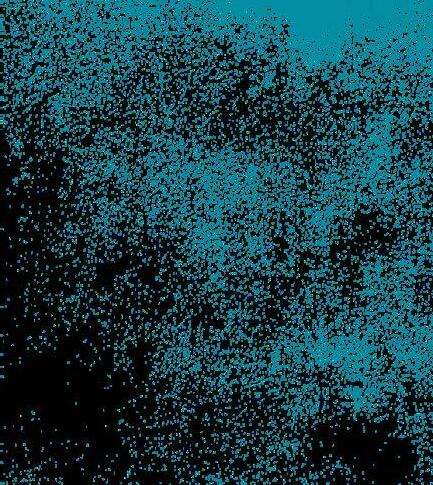
I had less than 24 hours to renew my passport, get permission from my employers, pack my suitcase, and go to the airport to meet the team. I didn’t think this was possible, but once my wife encouraged me to go, we sat down and prayed for God’s guidance and mercy. And sure enough, my passport was renewed within 30 minutes at the Ministry of Interior without an appointment. All doors were open; before you know it, I was on the plane with the team heading to Ukraine.
It was a novel experience getting to know each other in such unusual circumstances as we were getting ready to fly to Hungary. The shared goal of helping Ukrainian refugees really helped our team bond faster and on a deeper level.

After arriving in Budapest, Hungary, we met the team from OMS Hungary and were hosted by a family. The whole team sleeping in the living room added to the “togetherness” effect.
Our group met with the OMS Hungary and OMS Ukraine teams.
Team Israel was responsible for purchasing non-perishable goods we would take to the Ukrainian border.
On our way to the border, we had to trust God to find the right people to help us take care of the needs that weren’t being met. Our regional director put us in touch with an organisation called Maltai, working at the Beregsurány border.
Shortly after starting my volunteering experience, I felt like we could be helping much more. God really tested our patience, our trust in Him and our willingness to meet the needs where others didn’t. It took some time to pray and work on it as a team, but we saw how God worked through us as we trusted Him all the more.
Ukraine and listened to countless sad stories. I took refugees to doctor visits, helped them with an orientation at the help centre, brought them hot food and drinks and even provided food for their pets.
“I was able to help translate and register refugees at the Beregsurány help centre. I also packed humanitarian aid for the people in Ukraine and listened to countless sad stories.”
During our trip, I was able to help translate and register refugees at the Beregsurány help centre. I also packed humanitarian aid for the people in
I also took time to pray for the people and bless them in Jesus’ name. I encouraged them with some of my favourite Bible verses, like Romans 8:28. Some refugees burst out into tears while we had a moment of prayer. I met hundreds of people and was even privileged to help a family of a friend from church cross the border and come to Israel as refugees. But of all the stories, I want to highlight this one.
I’ll never forget a man called Vladimir who fled for his life in a wheelchair from Kharkov.
18 A Year with the Nazareth Trust 21/22 A Year with the Nazareth Trust 21/22 19
APRIL
His story brings me to tears every time I tell it. I met Vladimir while helping translate for refugees coming from the border. Vladimir crossed the border by ambulance. He was in his sixties and was missing both of his legs. Slightly over a year ago, Vladimir had a stroke, and half of his body was paralysed. His wife took care of him and attended to all his needs. Just as his health started to improve, his wife had a heart attack and died before his very own eyes. Because he was missing both his feet, he couldn’t get to her fast enough. She died, and he was swamped by guilt for not having been able to save her. He was left all alone without any family.
He said his only hope was to contact the Red Cross for help.
As I prayed for him, he couldn’t stop crying bitterly, and I felt his tears drop on my hands. I prayed that God would have mercy on him and guide him to the right place. I also felt helpless since there was nothing I could offer him, and I didn’t know anyone who could help him. But I trusted God.
The next day our prayer was answered! The Maltai organisation had found a place for Vladimir in Germany that would help him with the prosthetic leg surgery. God is great!

On this trip, I learned how important it is to work as a team, forget our differences and be united in our mission. I learned to be patient and flexible.

God exposed my prejudices towards refugees and began to change my heart and mould it into His heart for those seeking help.
And most importantly, now I know that God doesn’t need me to do any of those things I did, but the refugees needed me, and He gave me the opportunity, and I am overwhelmed with thanksgiving and His grace towards me.
I see and know that God is at work in my heart, He’s at work in Ukraine, and He’s at work to accomplish His plan that was set in motion before the world began.
I am thankful I got to be a small part of that plan, working in partnership with ILM and OMA/OMS in Hungary. It’s something that I will carry with me for the rest of my life.
Before the war, Vladimir had searched for a hospital that could give him prosthetic legs and teach him to walk. He found a specialist in the Kharkov hospital that agreed to help him. Moving to Kharkov, Vladimir was hopeful that after the prosthetic leg surgery, he’d be able to work again and go back to living his life in dignity.
But as the war broke out, this hospital in Kharkov was bombed and destroyed. With it, all of Vladimir’s hope was gone. As I sat with him in a waiting tent, he was lost, displaced from home, without family or contacts and hopeless.
20 A Year with the Nazareth Trust 21/22
“On this trip, I learned how important it is to work as a team, forget our differences and be united in our mission. I learned to be patient and flexible.”
Yosi Dolinsky (far right) distributing food and drinks with other volunteers
Short-term waiting area for refugees to rest until they get a ride to their next destination.
WORKING BEHIND THE SCENES: NAJLA (NANA) HAMATI
Medical Risk Management at The Nazareth Hospital
The Nazareth Hospital has been part of Nana’s life ever since the day she was born. She was not only born there, just like her mother, but also gave birth to her three sons there.
Her maternal grandparents lived in a house between the hospital and the Anglican cemetery where Dr Vartan and his children are buried. Nana would often visit them in the afternoons when they would be hosting teatime following Arabic lessons to the expatriates who worked at the hospital. Her grandparents also had the honour to meet all hospital directors as far as Dr Bathgate. Nana’s mother also became a committed volunteer since 1982, and later the coordinator of the volunteer ladies’ group.
Sometimes people ask her: “Do you know this person who worked at the
hospital a long time ago?” And she says: “Yes, I know them, but not from working at the hospital. I met them because they became friends with my grandparents and aunt.”
What motivated you to join the Nazareth Hospital?
Back in 1986, I had a job and was studying tourism in college. My aunt, Wajeeha, my mother’s sister, who worked at the Nazareth Hospital as a medical secretary; was the reason I came here. She said: “They need someone with your skills who can enter data at the computer”. At that time, this wasn’t common at all. I said: “Me? Work in a hospital? Who will want to work in a hospital?” I thought of a hospital as a place that is full of illness.

I wanted to travel the world, but my aunt kept insisting every time we met
and telling me: “Come, come, apply for the job!”. Later I understood that her insistence came from her faith. She is a strong believer and wanted me to be in an atmosphere where I could build relationships with other Christians.
Had something changed in relation to your faith?
I was raised in a Christian home, never missed Sunday School and church services, and I also went to the Baptist school in Nazareth. But after school graduation, I started university in Haifa, and worked in Haifa, and suddenly Sundays turned into work days, and Christmas is not Christmas anymore. You have to work and study. And I think she saw me withdrawing from Christianity. I didn’t have a community around me. And that’s the reason she kept insisting. I said: “Okay, I’ll apply
for the job. Deep down in my heart, I had made my decision: I’ll take three months’ leave and try the hospital job. And at the end of this trial period, I would say: “I tried it, but I don’t like it. Now I can get back to my old job.”
However, when I started working at the hospital, I met fantastic people and felt like I was doing something good for a well-deserved institution: I felt really appreciated. Within a few weeks, I felt like I was in the right place. I thought: “This is where I want to be.” It totally switched my thinking, and here I am, almost 36 years later!
Can you tell us about the different roles you have held at the Nazareth Hospital?
I started my career at the hospital as a data person. At that time, the hospital didn’t have any computers, so my job

22 A Year with the Nazareth Trust 21/22 A Year with the Nazareth Trust 21/22 23
MAY
was to enter patients’ data so that there would be data in the computers when they would be available for staff. After a while, we had a new General Director from the United States – Dr Robert Martin-, who started his role being assisted by his PA, Ms Jennifer Coward, both from the USA. A few months later, Dr Bob and Jenny realised they needed somebody who spoke Hebrew and Arabic to help with administrative work. For example, the correspondence with the Israeli authorities gradually changed from English to Hebrew. The hospital’s administrator at the time put my name forward, and I started helping with the Hebrew and Arabic correspondence, as needed, two or three days a week.
Gradually, the work expanded, and I started working full-time alongside the American secretary. When Jenny’s term came to an end, and she left back to the States, I took over as the personal assistant for Medical Director, Dr Nakhle Bishara and CEOs, such as Dr Bob Martin, Anthony Holt, etc. Eventually, and as work expanded, I became the Administrator for the Medical Risk Management and the Helsinki Committee. Now I am entirely focused on medical risk management.
And what sort of tasks do you do in the risk management field?
Risk management is a field that has expanded a lot throughout the years. When I was the assistant to the medical director, it was only four or five small files in a drawer. Today we occupy offices and stores. The tasks vary and sometimes seem endless. The major part of my job is dealing with legal cases. I work with two big legal companies, one located in
Dr Nakhle Bishara, Dr Robert Martin and Najla Hamati
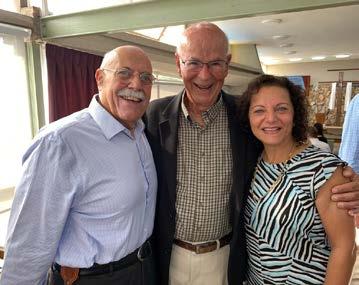
Herzilya, and the other, in Tel Aviv, both represent the hospital legally. I am also involved in the work with our Insurance companies.
I, together with my manager, Dr Helo, who is also a lawyer, and with the patient safety nurse, Eman, hold monthly meetings with all the heads of departments and in-charge nurses to review incident reports for learning purposes, and always aim to promote patient safety.
What is the most rewarding part of your job?
Being part of a community and feeling that you are serving a well-deserved institution.
And what do you think makes this hospital different from other hospitals?
The spirit in the hospital is unique. For example, the recent Dialysis Department expansion ceremony was very touching for me. This morning, I was telling Enas, our PR personnel, that we come to the hospital, we do our part, and sometimes we are
disappointed or discouraged by challenges. However, in the long run, people come, do their part and leave, not knowing what their role has contributed. Still, it’s a continuous nonending circle: the institution not only remains throughout challenges, but it also grows.
You mentioned that the ceremony of the dialysis department expansion was emotional for you. Do you have a connection with the Farah family?
I met the late Rev Shafiq Farah a long time ago. I was working at the Director’s office, and he always came to visit. When he wrote his book ‘What Shall I Do With My Life?” I translated one chapter into Arabic. The hospital didn’t have money to translate the book, so they gave a chapter to each
one of us who spoke English well to translate it into Arabic. His support to the hospital then, is being carried by his son, and It’s very touching to see the continuation of the work. God keeps our hospital in His care throughout generations.
Can you imagine Nazareth without the Nazareth Hospital? What would be missing?
The hospital gives so many crucial services to the people of Nazareth. When my son was unwell a month ago, I couldn’t imagine me taking him to a different hospital if we didn’t have this unique hospital. It’s a place that you rush to when you are in urgent need of help. It’s hard to imagine Nazareth without this hospital.
Najla (far right) visiting sick patients in the three hospitals in Nazareth with other pastoral care members

24 A Year with the Nazareth Trust 21/22 A Year with the Nazareth Trust 21/22 25
June 2022 — what a busy month!

June was an exciting month for the Nazareth Trust, which began with our UK office moving from Hill Street to Palmerston Place. Our new office is in the West End area of Edinburgh, next to Palmerston Place Church, in a building which also hosts other Christian charities.
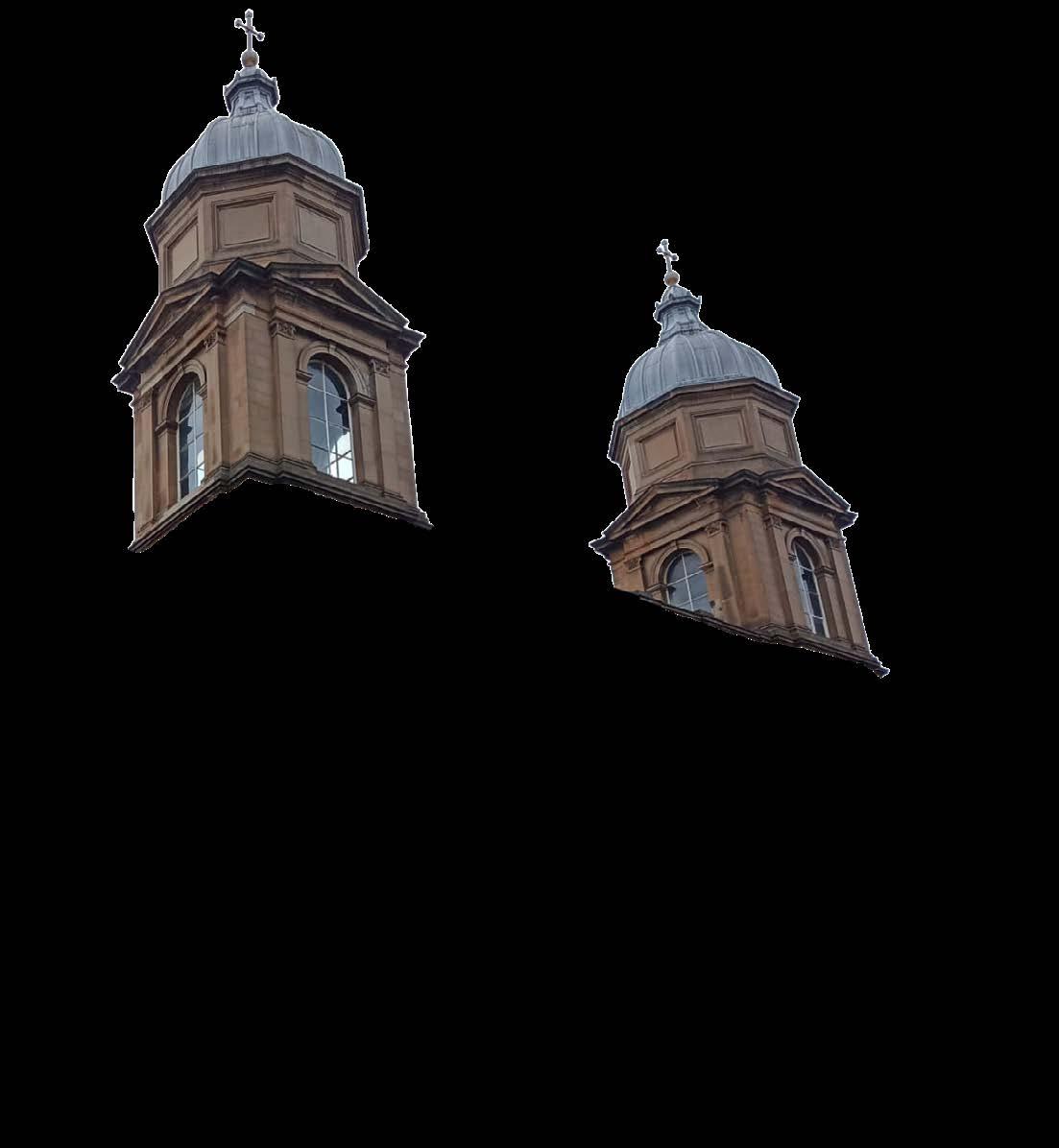

St Mary’s Cathedral is only a few blocks away, surrounded by a big grassy area. Haymarket train station is also around the corner, which is great!
Our new address:
Annan House, 10 Palmerston Place, Edinburgh, EH12 5AA
Left: The new office of the Nazareth Trust in Edinburgh
CELEBRATING OUR 160TH ANNIVERSARY IN THE CITY WHERE IT ALL BEGAN
On the 14th of June, we had the honour to gather at the Scottish Parliament to celebrate 160 years of medical provision in Nazareth in a networking event sponsored by Jackson Carlaw MSP, with over 70 guests attending.

What better place to celebrate our 160th Anniversary than the city where our story began? A 4-bed clinic founded in 1861 by an Edinburgh student has become one of the largest Scottish charities and much more: The Nazareth Trust’s work is pursued through the Nazareth Hospital, Nazareth Academic School of Nursing, Nazareth Village, SERVE Nazareth and the Spiritual Care Ministry.
While eating some delicious and carefully presented nibbles, guests mingled and did some networking, meeting new and old faces within the Scottish Christian community. The key guests attending included Dr Morgan Jamieson MBE (Former Chairman of
the Trust), Professor Jason Leitch CBE (Board Member at the Trust), and all the way from Nazareth, Professor Fahed Hakim (Nazareth Hospital Medical Director) and Dr Salam Hadid (Nazareth Academic School of Nursing Director).
Two Board Members – Norman Bennett and Mary Macleod –joined the event too, alongside one of the Trust’s patrons, theologian and writer Elaine Storkey.
We were also delighted to welcome Robert Aldridge (Lord Provost of Edinburgh), Rev Dr John Armes (Bishop of Edinburgh) and Revd Dr Iain Greenshields (Moderator Designate of the General Assembly of the Church of Scotland), amongst others. Of course, we cannot forget to mention all the long-standing supporters that also joined us in such a special celebration.
Thank you so much to everyone who took the time to celebrate this important milestone with us. We hope to see you again very soon!
28 A Year with the Nazareth Trust 21/22
“The Nazareth Trust’s work is pursued through the Nazareth Hospital, Nazareth Academic School of Nursing, Nazareth Village, SERVE Nazareth and the Spiritual Care Ministry.”
FIRST BOARD MEETING IN ISRAEL SINCE 2019
All Board Members were delighted to be back in Israel again after several years of online meetings due to the COVID-19 pandemic. During their visit to Nazareth, the Board enjoyed a visit to the Nazareth Hospital and a tour of Nazareth Village.

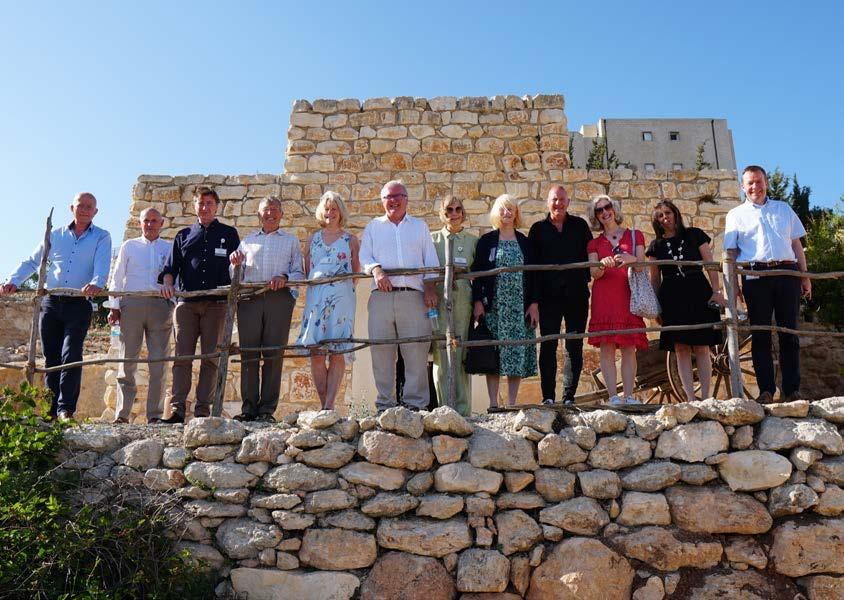
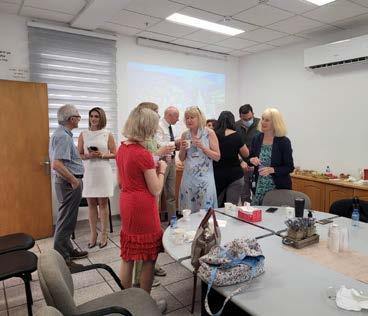
EXPANSION OF THE DIALYSIS DEPARTMENT
“When my dad passed away, I promised myself that I would do something for the hospital” — Peter (Najeeb) Farah
On Monday, 20th June, we gathered at the Nazareth Hospital Bernath Auditorium to celebrate the opening of the new dialysis department named after the Reverend Canon Shafiq A. Farah (1923-2002). This expansion was possible thanks to the support received from Peter (Najeeb) Farah and the American agency USAID (United States Agency for International Development).
Let’s learn a bit more about Peter Farah…

Early childhood
Peter Farah was born in 1960 in Beirut, Lebanon. His parents, both Palestinian Christians from Shefa-Amr, suffered a lot from the Nakba in 1948: “Long story short: my father couldn’t go back home in 1948. He was engaged to my mum for eight years before he could see her. She eventually left in 1954 and was stripped of any rights.” As a child, Peter witnessed The Six-Day War in 1967, Black September from the kitchen of a church and the Yom Kippur War in 1973.
Members of the Board reunited in Israel
Peter (Najeeb) Farah with his close family and Nazareth Hospital staff
All these events had a profound impact on Peter’s life: “Since then, I’d always thought I have to do something for the people of Palestine. Also, I realised that I am called upon in faith to work for peace in peace”. And he certainly did!

From Lebanon to Canada

In 1974, 14-year-old Peter and his family moved to Toronto, Canada. By chance, his father, Rev Canon Shafiq Farah, met Dr Bob Martin while on a walk near the church, and learned that the Nazareth Hospital was under financial pressure. Rev Shafiq immediately started raising funds for the hospital by starting chapters of Friends of the Nazareth Hospital in Canada, the United States and New Zealand.
Following in his father’s footsteps

Inspired by his dad’s philanthropic work, Peter has always been determined to support the Nazareth Hospital just like his father did. It all began with a donation of $150,000 to buy new chairs for the Nazareth
Hospital’s dialysis department. Peter’s dad was on dialysis for 5 years in Toronto before passing away, so Peter felt a special connection to this cause. A visit to the Nazareth Hospital helped him make the final decision: “I was euphoric. There was a really nice Christian environment with wonderful people. I felt the energy there.”
Fast forward to 2022
Peter and his wife make a generous donation of $1.8M towards the expansion of the dialysis department, in honour of Rev Shafiq: “My dad had an incredible influence on my life. He made me who I am.” They also donated £2.4M towards the expansion of the Nazareth Academic School of Nursing. This project resonated with Peter since his mum Laila, currently 94, studied there and worked as a prep nurse in the operating room.
Planning for the future
But Peter’s work doesn’t stop here. He is now in the process of registering a charitable foundation, the Farah Foundation: “Once that begins, I really want to kick off doing more for the Nazareth Hospital, including funds from other people. I am committed to the Nazareth Hospital.”

Peter has always admired our ministry of love and care: “It’s a place for everybody, nobody is ever refused treatment. Everybody works together. Israel is multi-layered. At some layer, people work together, no matter what. The top layer is the humanity layer. People need to learn to go there because, at a human level, we can all meet.”

A Year with the Nazareth Trust 21/22 33
Peter (Najeeb) Farah with Pastor Suheil
Dialysis department at the Nazareth Hospital
Maha Zaher, the nurse in charge of the Dialysis Department
From left to right: Prof Karl Skorecki, Dr Zaher Armly, Ali Salam (Mayor of Nazareth), Prof Fahed Hakim and a businessman
THE NAZARETH ACADEMIC SCHOOL OF NURSING PREPARES FOR THE FUTURE

The Nazareth Academic School of Nursing
is growing fast!
We’re beyond excited to share that on the 8th of July 2022, the expansion of the Nazareth Academic School of Nursing officially began!
Two new floors will be added on top of the existing building: the first one will include two classrooms, four modern simulation rooms and staff offices.
We are dedicating these new buildings to Laila Farah, a former nurse at the hospital.

Dr Salam Hadid joins the prestigious INBAR Program
How did you learn about the INBAR program?
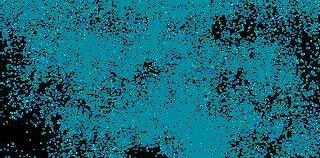
Soon after joining the Nazareth Academic School of Nursing in 2020, I started a course on Policy and Management in Health Services. During this course, I had a few meetings with MAOZ and was exposed to the Healthcare Management Program, a joint project with the Israeli Ministry of Health. For the last two years, two of my colleagues (Prof Fahed Hakim and Waseem Dibbini) have been studying this course and encouraged me to do it.
What did the application process consist of?
Dr Ameer Elemy, the Nazareth Hospital Director’s Assistant, and I registered, and we had to go through individual and group interviews. From almost 400 people who applied, they selected 26. I was one of the two nurses that were accepted. For the Nursing Division within the Ministry of Health, it’s very important to have two nurses in the program. Dr Ameer and I got accepted, so in two years, we will already have four members of MAOZ within EMMS Nazareth. We are very proud!
Who else is doing the course with you?
Twenty-six people from different health professions and different cultural backgrounds. There are five Arabs in total.
When did the course start?
The first meeting was in September 2022, which was a really special week.
How long is it?
It will be one year, ending in February 2024. At the end of the course, we will have two weeks of training to address Israel’s socio-economic challenges and their impact on Israel’s healthcare system, develop personal leadership capabilities, and build the group and the network. This part of the program is in collaboration with Harvard Business School and includes a trip to the United States.
Where do the classes take place?
Every time is in a different place: we will travel around Israel. We also invited them to come to Nazareth.
How will this course impact your work managing the School of Nursing?
First of all, I meet so many people. One of the benefits of the course is building a network of professionals who can discuss and advise in dealing with various challenges encountered at work. This network can create additional connections, create partnerships and promote processes. During the course, we will learn and practice a different way of looking at the challenges, a different language of leadership and dealing with challenges.
34 A Year with the Nazareth Trust 21/22 A Year with the Nazareth Trust 21/22 35
JULY
Nursing students practising airway suctioning.
SERVE NAZARETH MEET ANNA HERNING
Welcome back, volunteers!
In 2022, we were able to re-open our Christian volunteering program, SERVE Nazareth, after a long hiatus due to the COVID-19 pandemic.
Many volunteers have already returned to Nazareth (old and new faces!), coming from different places, such as Germany, Paraguay, Norway, and the United States. A diverse group of people in terms of age group and background united in their faith.
Pilgrim’s Guest House refurbishment
Our Pilgrim’s Guest House, most commonly known as the “Doctor’s House”, was built in 1911. It has been recently refurbished to a very high standard and has free Wi-Fi throughout (certainly not a commodity they had in the early 20th Century!). All bedrooms are en-suite and have air conditioning. There are also common areas for you to enjoy and socialise with other guests, such as a fullyequipped kitchen, a lounge and a balcony.
Majdoleen
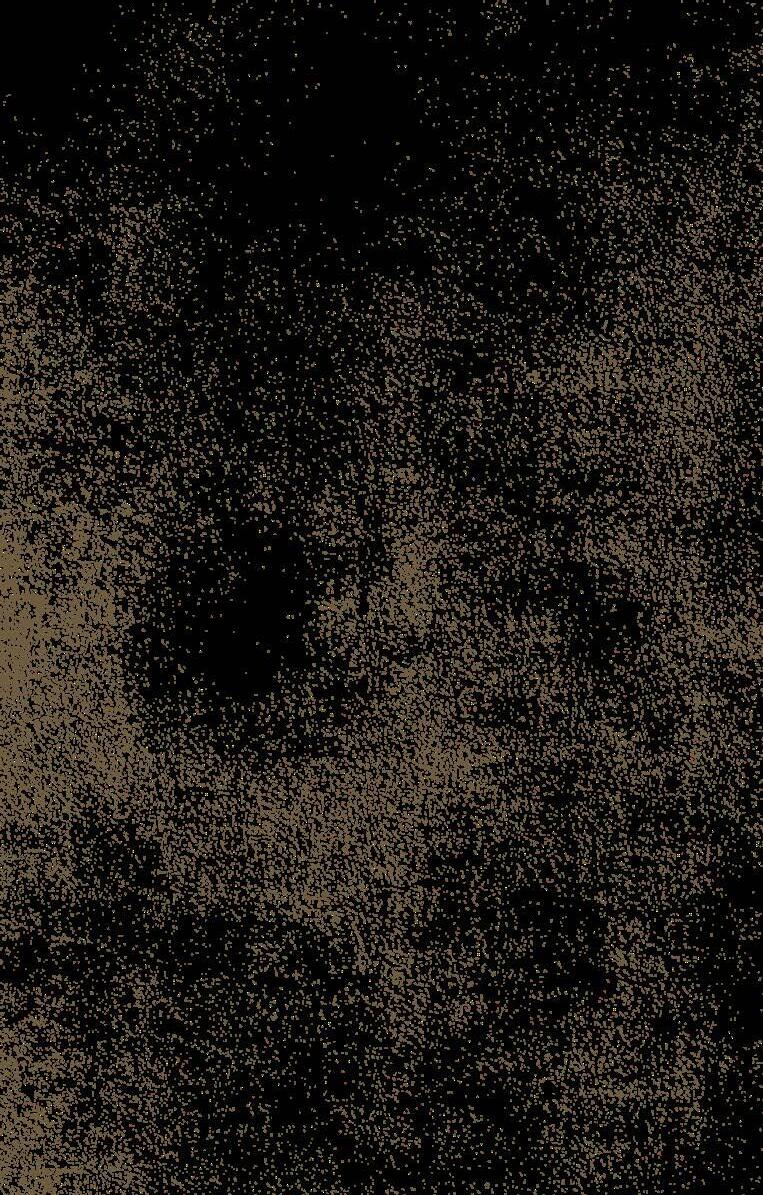
Nawatha, new SERVE Nazareth Coordinator
After former SERVE Director Christine Farah transferred to the Nazareth Hospital’s Pastoral Care Team, we appointed Majdoleen Nawatha as SERVE Coordinator.

Click here to read her interview on our website.
Are you planning a trip to Nazareth and need accommodation? Come and stay with us at the Pilgrim’s Guest House. Click here for more information.

Home country: USA (Chicago)
Volunteering in Nazareth: 11 months
Educational background:
Communications, and peace and conflict

How did you end up volunteering here?
It’s a very long-winded story. I was at a random college event where two retired professors opened their house to students, made dinner and had speakers come in. We had some people talk about reconciliation in Rwanda, a counsellor from Romania, etc. One day, a group came to speak about the MCC (Mennonite Central Committee), which is the organization I am coming through. And I was thinking: “Wait, why am I so on board with this?” I applied and got it. I was with them last year, and they invited me to come again. Nazareth was one of the placements with SERVE in the Nazareth Trust. It looked good, and it felt like that’s where God wanted me, so now I’m here.
Volunteer in Nazareth

Is this your second time volunteering?
It’s my second time in this part of the world. Last year I was supposed to be on this side of the Jordan river the whole time. But after lots of COVID-19 closures and letters of approval expiring, I ended up in Jordan for five months and then Israel/Palestine for six months, but not in Nazareth.
What tasks do you do as a volunteer?
Anything and everything. Right now, I am at the Nazareth Village for the busy season. Eventually, they might put me as a volunteer hospital chaplain sometimes. I am mostly based at the village restaurant, doing lunch service. I do the dishes, talk to the tourists and explain how we prepped the 1stCentury meals. We’ve done some tour guiding, which has been really fun: bringing all this information together about the history, the archaeology, and the Bible and making it make sense. I’ve also done other things on the land, such as harvesting some olives or picking rosemary. It’s been fun!
36 A Year with the Nazareth Trust 21/22 A Year with the Nazareth Trust 21/22 37
AUGUST
Anna volunteering at NazarethVillage
Are you taking this volunteer experience as a personal retreat? A disconnection from the busyness of life?
Yes, it’s a little bit outside of my normal career interests, but just felt like that’s where God wants me to be, so not totally sure why that is yet. Not sure how He is going to use it. But if I am meant to be here, something will happen. Something will be how He needs to shape me. For me, it’s been really helpful. I was here in Israel/Palestine last year and got to learn a lot about the context and what’s happening. And this year, I feel like I am able to fill in the new volunteers a little more about the culture. Do more language study. Form more relationships with people. It’s more of a deeper learning.

So, you’re learning Arabic? What tools are you using?
Trying! I started out learning on an app called Mango languages. When I was in Jordan, I took some lessons. And then last year, I learned some more just from immersion. Now I’m about to start inperson lessons here with a tutor.
I guess if you know the language, the interaction with the locals is much different, right? So much better and deeper. It’s meaningful to speak to someone in their language, even if you’re awful.
What do you love the most about volunteering?
I think service is one of the biggest aspects of deepening your faith. That’s how you give back. I think it’s very important to learn to love people through that. I also think service is such an interesting time because so much of the world is so career-driven and ambitious. It’s all about going forward and up. Volunteering breaks that ideal of productivity. I’m just going to be here. I’m not saving, and I’m not making money either, but I’m here because it’s something I believe in. I feel it’s good for my heart in a way. Just making sure my focus is on the right place and my priorities are straight. And I love the people. When you’re volunteering, you meet like-minded people, and you hear stories from
people. You get to see other people’s lives, but other people get to live this 365 days a year. They don’t have a choice to come or go, so especially in places where there’s a lot of struggle, volunteering is really a privilege; to be able to live with people and choose intentionally to see what you wouldn’t otherwise see.
Is there someone you have met here that particularly inspired you?
I love the staff at the village: everybody’s super great. It’s really cool to have a mix of Messianic Jews, Palestinians and internationals… a mix you would never see. Everyone has their own story about where life has been really hard and how they’ve seen God work in it. And the generosity of someone who says I’m going to bring Nutella tomorrow for everyone. Or those people who check in on everyone, making sure everyone is okay.
Do you feel like you have become a temporary family?
Yeah. People look out for each other. I’ve met people who really embody God’s love and care as a shepherd, really looking out for people, which I don’t see very often.
What would you say to someone who is considering volunteering at SERVE but is unsure?
Living abroad is definitely a big decision, and it comes with a lot of difficulties and sometimes loneliness. Really pursue what you feel you’re called to. Do something you believe in. There’s so much learning and growth with it, but you need to know it’s a commitment before you step in.
What has been your highlight so far from your time in Israel?

There’s been a lot of fun things. Honestly, the work culture at the village is super sweet: there’s so much tenderness and people who really care for each other. That’s the big overarching highlight. One specific incident highlight, Majdoleen, the SERVE coordinator and Lina and some of the other volunteers went down to a coffee festival in the old city. We were just walking around, and it was all hustle and bustle and music… that was sweet, I like that.
What has been the most challenging part of the experience?
Living cross-culturally, not the culture shock aspect, but creating community. I work with these people all day, and they are amazing, I love them, but then they all have kids and a family, so nobody is really hanging out after work. The people in the guest house are of different ages and languages… We built really good relationships, but it’s very difficult to know how to do community with other internationals and locals, making sure you’re taking care of yourself and processing enough when there’s not enough hours in the day.
Are you thinking of repeating the experience in the future?
I’m only a month in, so I don’t know yet. I am open to what God says it’s next. I kind of feel two poles in my heart: my home community and here…
Are you ready to join the SERVE family? Visit servenazareth.org to discover all the available opportunities!

38 A Year with the Nazareth Trust 21/22
Olive Harvest 2022

The combination of heavy rains last winter, followed by a long hot summer, created ideal conditions for growing olives. Therefore, our trees produced a “bumper crop” this fall. Amazed at the size of our harvest, we were left wondering how we would manage to pick so many olives. Thankfully, God sent help in the form of many volunteers who came to assist! The groups of volunteers joined us between mid-October and early December and helped us pick olives. The large and green ones had to be carefully selected for pickling. We sent the rest to the olive press. Now we have tons of olives to serve our guests at our Biblical lunches and lots of olive oil to use while preparing the meals.

A Year with the Nazareth Trust 21/22 41
SEPTEMBER
Left: A volunteer olive picking in Nazareth Village.
A recent collaboration – facilitating unity

The Nazareth Village recently hosted a filming production on an evening shoot session. The purpose of this media visit was to create three music videos of Christmas songs – intentionally fostering unity between Arabic and Jewish believers – by singing them in English, Arabic, and Hebrew. The singers in the video come from

amongst the locally well-known Christian Arab and Messianic Jewish musicians and worship leaders, such as Nizar Francis and Joshua Aaron. It was our pleasure to help facilitate unity in the Body of Christ locally and internationally by providing the authentic first-century backdrop for these songs celebrating the Coming of our Messiah into the world.
A resurgence of visitors coming to Nazareth Village (Post COVID-19): close to 60,000 in 2022

After having a record year in 2019 with more than 120,000 visitors, COVID-19 shut us down for about 20 months! We were so thankful to God, and to you, our faithful partners and supporters, to be able to open again, in the fall of 2021. However, considering all the upheaval and instability in the world, and
specifically, incoming tourism to the Holy Land, we were not sure what would happen. We are very glad to report that we are seeing many of the tour leaders and faithful friends we have gotten to know over the years, returning to Nazareth Village and bringing their groups here. It is a great encouragement to us. Praise God!
Meet Ivone Sima’an (74)
How did you end up working at the Nazareth Village?
I was at a church meeting, and Mike Hostetler told us they needed workers at the Nazareth Village. I approached him and said I’d like to work there. Back then, I already had two jobs: I was a seamstress manager at Abu Sna’an and Haifa. I didn’t know what to do, but my dad said: “No need to be confused. Come, we will pray.”

We agreed that the first phone call to ring would be where I should work: it would be God’s answer to prayer. Indeed, the first one to call was Maha Sayegh from the village, and that’s how I started working there. There was a lot to do at the beginning, including planting, building and cleaning. We all worked hard every day until we could barely stand on our feet. When I look at the Nazareth Village from my home window today, I’m proud of how far it has come.
We all work with a joyful heart because everyone around us supports and encourages us.
How has this workplace contributed to your personal life?
“Life at the Nazareth Village is such an enjoyment for me. I love to give from my heart because it’s not a top-down relationship: we are a family.”
The village has taught me three things: love, be generous, give it your all, and sacrifice. Working at the Nazareth Village as a believer, I could show love for the tourists and interact with kindness. I could greet everyone with an open heart. I love the village because it’s my second home.
How is the Nazareth Village different from your previous workplaces?
What do you enjoy most about working at the Village?
Life at the the village is such an enjoyment for me. I love to give from my heart because it’s not a top-down relationship: we are a family. We eat from the same plate and share all the small and big things. The management gives so much value to the workers.
I worked for 30 years in Kitan, a textile factory. I started as an employee and grew within the company throughout the years: I trained new employees and managed several departments. That job gave me strength and perseverance and taught me a lot about responsibility. However, something was missing: there was no fire of faith burning in my heart. I joined the Nazareth Village as a believer, and my life started to bloom as I learned more and more. I came here to serve with honesty and integrity. All the staff is generous and full of love. Even when I leave the Nazareth Village, I will never actually leave it because it’s in my blood, heart, and spirit.
NAZARETH’S VILLAGE WEAVER

What would you wish for the Nazareth Village?
I will always pray for the Nazareth Village. I will visit and support them; whenever they need me, I’ll be there. I will always be part of the Nazareth Village family. I wish that Nazareth Village grows year after year and has lasting success. I wish all the staff and management find strength and health to keep the bond that ties them together.
Now that you’re leaving in January and will work much less, how do you feel?
In 2023, I’ll come as a volunteer to meet my beloved friends and share their happy and sad moments. Share in their weariness because I’m one of them, and I’ll always be here for them.
Do you want to experience life at the time of Jesus? Click here to book your tour.
JESUS TRAIL REFLECTIONS
Peaceful moments. Challenging routes. Tired feet. New friendships. Sister-time. Wonderful memories.
I loved hiking the Jesus Trail! My sister and I had looked forward to this trip for a couple of years. And now it had become a reality! We walked along dusty roads, rocky paths, village streets, muddy fields, crossed streams, ascended and descended the Horns of Hattin and Mount Arbel, and hiked along the Sea of Galilee. I tried to imagine what it must have been like when Jesus walked here with his disciples, and as I reflected, I realized that, in a sense, Jesus was walking with us, too. Jesus was with us as we hopped from rock to rock across streams, encouraged each other on hilly climbs and rocky descents, and formed new friendships. I enjoyed experiencing the local culture through our Jewish tour guide and the kind hospitality of a local homeowner who allowed us to use their private restroom and then served us tea!
If I had to choose a favorite part, it would be the steep descent of Mt. Arbel or perhaps finding our way along the Sea of Galilee (wait, is this the right way to go, or is it that path over there?)

Or maybe my favorite part was relaxing at the edge of the Sea of Galilee at night, with the lights of Tiberias shining across the lake, and then watching the sun rise over the Sea the next morning. So many favorite moments and rejoicing that I could share these amazing experiences with my sister. I feel privileged to have been part of the Jesus Trail 2022.
Josie Swartzentruber (Lancaster, PA, United States)
Ready to make some memories?
We’re running two events in 2024: Spring: 17th – 23rd March 2024
Autumn: 3rd – 9th November 2024
Click here to get more information about the Jesus Trail 2024.

A Year with the Nazareth Trust 21/22 47
OCTOBER
The Three Seas Challenge — a biking adventure from Tel Aviv to Nazareth

Ajourney is so much more than the destination, or even the varied waypoints along the road. It’s the companionship. It’s the sights, the sounds, the smells. For an Irishman who loves his food, it’s definitely the tastes. It’s the people you meet along the way. The very texture of the ground beneath your feet and beneath your wheels. Here I am, almost three decades on from my first visit to the Nazareth Hospital as a medical student in 1993, a veteran of five Nazareth Challenge bike rides, and still captivated by this scruffy jewel of a town and its remarkable people.
Tel Aviv buzzes with e-bikes, scooters and regular bikes. Our 14-strong team of Nazareth Challenge bikers have over 340km and 5000m of climb ahead of us over the next

five days. Cruising the Mediterranean beachfront, past joggers, volleyball players, dog-walkers and strollers, we weave through a thoroughly modern bustle. We head up the Yarkon River valley, a combination of road and track that will eventually bring us to Neve Shalom Wahat-as-Salam (“Oasis of Peace”) - a joint Jewish-Arab community on the fringe of the West Bank hills. It’s a place that seems to embody the hope many of us have for reconciliation and co-existence in this land.
The climb to Jerusalem presents challenges such as punctures, chain breaks, water hazards (these were mostly fun) and the occasional mild tumble. We arrive up the old railway route with some energy still left for exploration.
48 A Year with the Nazareth Trust 21/22
From left to right: Rick Rhoads, Shane McKee and David Blackhurst
The Old City teems with fascinating Christian, Muslim and Jewish conservatism - quite the contrast to Tel Aviv’s modernity.
Leaving Jerusalem the following morning, we pass through the checkpoint and the forbidding Separation Barrier wall, beyond which the large sprawl of the “little town of Bethlehem” lies draped over the parched hills. The Church of the Nativity has been extensively restored, the relics and mosaics meticulously polished and refreshed. We reach the ancient Mar Saba Monastery, clinging to a dizzying ravine on the border of the desert. Our path will take us along dusty, treacherous tracks at breakneck speed down into the Dead Sea valley, bouncing past trucks laying pipelines, military bases and abandoned tanks. At the historic mosque of Nabi Musa a late lunch of delicious traditional Palestinian Maqloubeh (“upside down” chicken and rice) restores our energies for the day’s final push towards Jericho, the lowest - and oldest - city on earth.
By now, we Nazareth bikers are in our rhythm, bonding as a team and unstoppable. The next day we head north through the dry hills of the West Bank, eventually to the crossing into Israel, for a relatively easy ride to our next night at Bet She’an, accompanied as always by our amazing support team providing bike repairs, food, and gallons of water.
The conical prominence of Mount Tabor comes into view on our final day, and we know we are within striking distance of Nazareth. There are steep climbs to come, working up through the Churchill Forest and into the town itself, dodging its hectic traffic. One last push up through the narrow passageways of

the old souq (market), and we emerge to pass through the gates of the hospital.
The skirl of the bagpipes from the local Scouts band, the rapturous reunion with our hiker friends from the Jesus Trail, the joyous welcome from the hospital staff and friends from the town - everything combines to create an intoxicating finale, tinged with perhaps a little sadness that our pilgrimage on wheels has ended. Our friendships, however, will continue. Nazareth’s own journey goes back over two millennia, and I’m certain it will continue for many years into the future as more pilgrims and locals come and go. People of all faiths and none, with their individual challenges and dreams, each writing their own piece of the Nazareth Story.
Shane McKee (Northern Ireland)
CHRISTINE FARAH
From SERVE to pastoral care

Christine Farah, originally from the North of England, moved to Nazareth when she married Elias, a Nazarene. Her journey at the Nazareth Trust began in 2009, when she helped establish the SERVE programme, which launched in 2010. Christine worked as the SERVE Director for many years until the COVID-19 pandemic changed everything…
What have you learned from your time at SERVE?
One of the biggest spiritual and life lessons was: “You are not fully in control”. You have to rely on God also because He has a bigger picture, and
He is working things out in a different way. In leadership, you get lots of praise and criticism at the same time and trying to stay grounded can be hard. Don’t let criticism bring you down!
What made you want to transition from SERVE to pastoral care?
When COVID-19 hit in March 2020, we had to send everybody home, which was not easy. Our CEO Richard told us to focus on providing pastoral care to staff. We have a chaplain here, but he also wanted others to join. Everyone else in that meeting was male, so obviously, you need a female.
A Year with the Nazareth Trust 21/22 51
NOVEMBER
There are departments like the maternity ward where it’s all women, so it would be appropriate for me to help there. As it went on, I realised how much I enjoyed that work. I had done pastoral care work before with the volunteers, and I realised how much I missed it. I really enjoyed catching up with people and praying with them when there was an opportunity.
What’s the most challenging aspect of your job? And the most rewarding?
Very early on, when we started working as a team, there was a patient who knew they were dying and specifically wanted me to accompany them through that difficult time and physical deterioration. It was one of the hardest things and one of the best things also because you could see it made such a big difference to them and their family. It’s hard not to be emotionally attached and grieving when that person passes away, but it’s only natural.
How do you navigate providing pastoral care and support to people with different religions, languages and cultures?
I’ve been really fortunate to work alongside Pastor Suheil, who has many years of experience. I learned a lot from him, how he bridges any gaps. We are very lucky in this land: when we meet people of different religions, most of them believe in God. It’s amazing that despite our differences, we can share something meaningful.
How do you see the Pastoral Care Team in five years?

There’s been some really good research recently about the importance of pastoral care for people with serious illnesses, so it would be really helpful to know where the challenges and serious illnesses are. I would love to see a bit more integration within the treatment team.
“We are very lucky in this land: when we meet people of different religions, most of them believe in God... despite our differences, we can share something meaningful.”
What does pastoral care mean to you?
That’s a really tricky question. A long time ago, when I did a course in Christian leadership, they challenged us to think: “What is your purpose in life?” Since then, I have always had this image of walking along the road and meeting people at different stages. You walk together for a time, supporting and challenging each other, hopefully helping each other grow spiritually. This is something I really saw with SERVE, and it’s the same where I am now.
Do you mean having more contact with nurses and doctors to build up a care plan for each patient?
Absolutely. We don’t always have much detail of medical records, but if a doctor tells us to visit a patient, we go. Sometimes it’s because they noticed patients with pictures, icons or prayer cards next to them. Since they are handling their illness in a spiritual way, they would benefit from a pastoral care visit. However, we visit every room. We are a Christian hospital, so we’re here to care for you in every way, not only physically but also spiritually.
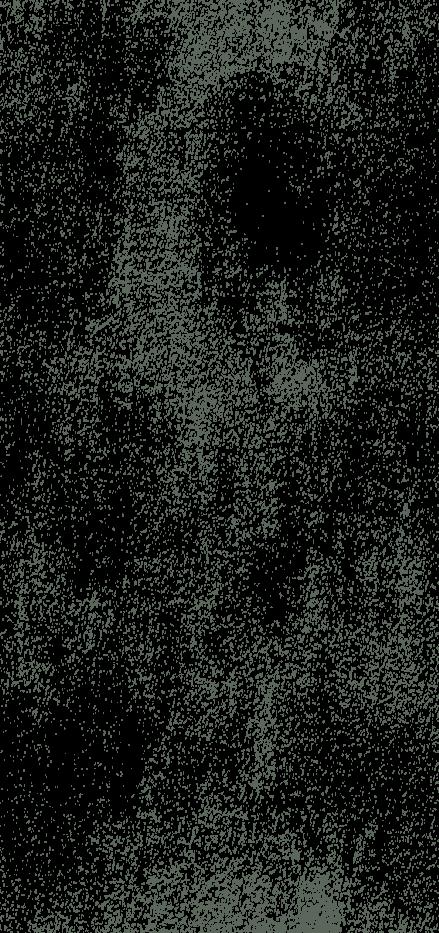
What did you want to be when you grew up?
This is a funny question because I was only recently thinking about that. When I was maybe five or six, people would ask: “What do you want to do?” and I always said I wanted to be a nurse. But my concept of a nurse back then was sitting next to the patient, comforting and caring for them in an emotional way rather than a physical way, and it’s very similar to what I ended up doing. This was always where I wanted to be.
You spend a lot of your free time doing pottery. What do you get out of it?
Yes, I go once a week to a pottery studio. We joke that this is our therapy for the week. It’s a good place to do something entirely different from our day jobs, using our hands, moulding and shaping something. It’s a good place to reflect and switch off. There’s something creative about it and the joy of being relaxed and enjoying the process. A piece is never lost; until you fire it, it can always be changed.
52 A Year with the Nazareth Trust 21/22
Christine (top left) with the Jesus Trail participants
RECEIVING AND SHARING GOD’S COMFORT IN TIMES OF TROUBLE
By Frank Kantor, Spiritual Director
The above verses have been a great encouragement and point of reference for us as we have navigated the challenges and opportunities this year has presented. We give thanks to God for the comfort and reassurance we received from various people as the Pastoral Care team as we have continued to provide a ministry of prayer and presence to members of staff, volunteers and patients, and their families at their point of need.
We are also grateful to God for his preserving grace towards us and all our staff as we finally emerged from the six successive waves of the COVID-19 pandemic in Nazareth over the past two years.
However, we became acutely aware of the physical, emotional, and spiritual toll that this exacted on all of us, and of the need for soul restoration for us as spiritual carers to enable us to continue to provide God’s comfort and compassion to others.
Therefore, we prioritised personal quiet days and team retreats for prayer and reflection as part of our work plan for the year. These have served to refresh and restore us, and we are most grateful for those who helped facilitate and lead these retreats. It is indeed in quietness and trust that we find our strength, as Isaiah reminded the people of Jerusalem at another time of great turmoil.
We also witnessed God’s comforting and sustaining presence during the challenging financial crisis we experienced this year, which resulted in the closure of the hospital for a week in September. The outpouring of love and support for the Nazareth Hospital from local communities and civic leaders was very encouraging and served as a timely reminder of the special place the Nazareth Hospital has in the hearts of Nazarenes and those from the surrounding towns and villages. In addition, solidarity visits by Church leaders and representatives from the different Christian traditions in Nazareth and the wider Galilee region and the special prayer services held over this time were also a great blessing and encouragement to us. Particularly memorable was the spontaneous prayer service convened in the hospital chapel at the height of the crisis. Pastor Nizar Shaheen, who happened to be visiting Nazareth at the time, spoke to a chapel full of anxious staff members on Jesus’ call to be salt and light amid the decay and darkness in the world.
The service closed with the passionate singing of the Lord’s prayer in Arabic, which provided a resounding cry for God’s kingdom to come and His will to be done amid the financial and health challenges people are facing in Nazareth and the rest of the world. Finally, we give thanks to God for the encouragement and financial support we received as the Pastoral Care Team from the participants of the Nazareth Challenge sponsored hike and bike ride this year. Their presence among us as we shared in walking part of the Jesus Trail with the hikers, and the joy of welcoming the cyclists and hikers back to Nazareth at the end of a successful challenge was a great blessing to us. The GBP 60K raised to build the capacity of the Pastoral Care Team is immensely appreciated! Our prayer is that you may all know the comfort of the Lord amid the many challenges we are currently facing in the world so that you may be able to comfort those around you with the comfort you have received in the year ahead!

54 A Year with the Nazareth Trust 21/22 A Year with the Nazareth Trust 21/22 55
“Praise be to the God and Father of our Lord Jesus Christ, the Father of compassion and God of all comfort, who comforts us in all our troubles, so that we may be able to comfort those who are in any trouble, with the comfort with which we ourselves are comforted by God.”
(2 Cor 1:3-4)
Thank

Nazareth Trust Annan House, 10 Palmerston Place, Edinburgh, EH12 5AA www.nazarethtrust.org Tel: +44 (0)131 225 9957 info@nazarethtrust.org
you for your faithfulness and support this year. You can keep up to date with all our projects by following us on Facebook, Instagram, Twitter, YouTube and LinkedIn. The
The Nazareth Trust is a registered Scottish charity no. SC032510 and a company limited by guarantee registered in Scotland no. SC225661











































































